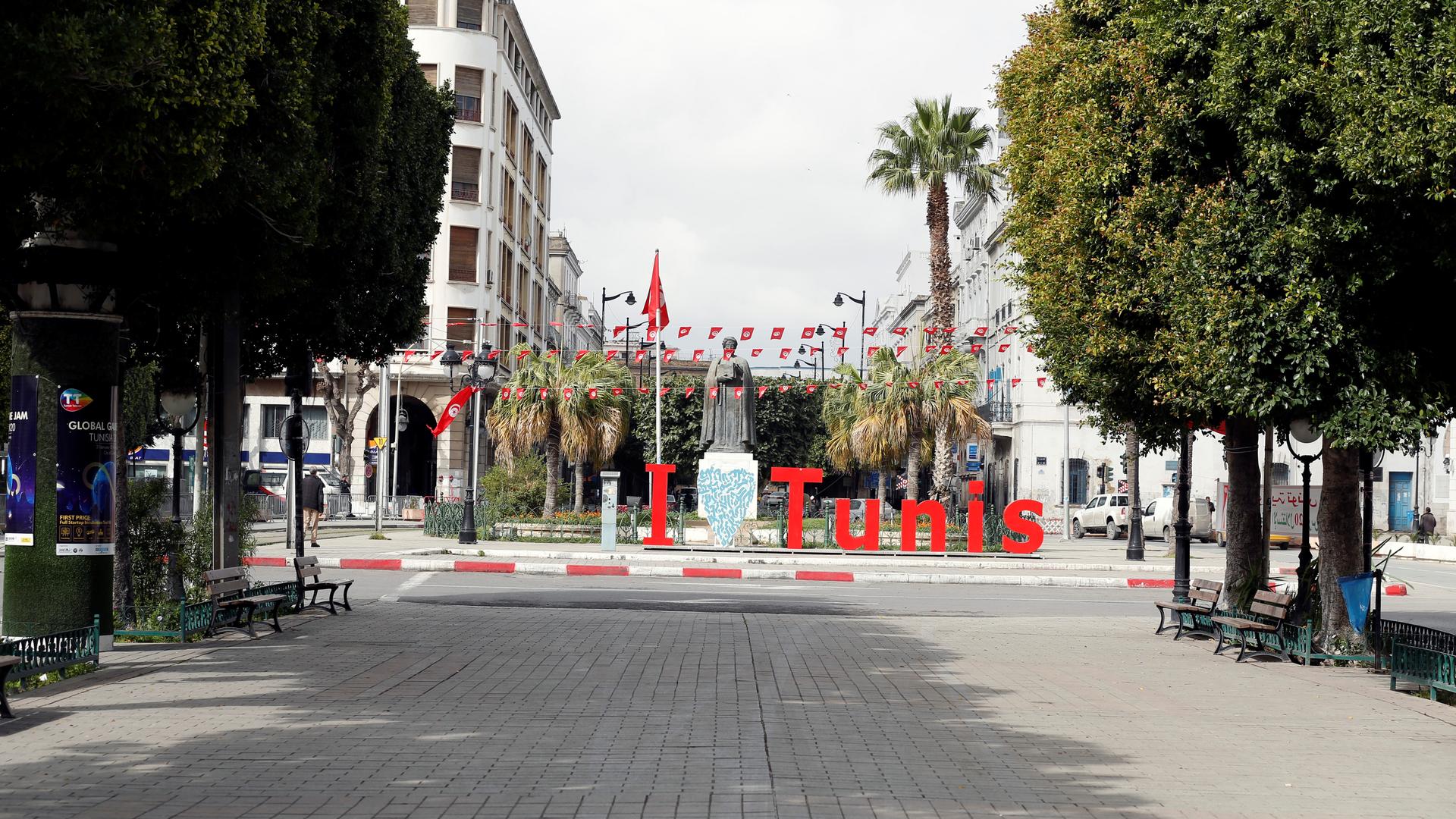How the government will handle this crisis will shape the trajectory of the rest of its tenure.
Last week, Tunisian armed forces took to the streets to ensure the compliance of citizens with the nationwide lockdown as part of the measures taken to contain the spread of coronavirus.
While Interior Minister Hichem Mechihi stated that, “Anyone who breaks the security rules will be treated as a criminal because failing to respect rules within the context of the pandemic is a crime,” over 400 people who defied the curfew were arrested on the first day.
President Kais Saied announced that the lockdown is going to be in place until April 4. He urged people to avoid going out of their homes unless an absolute necessity.
The announcement came following the confirmation of the first death in the country. As the time of writing, there were 362 reported cases, and more than 17,000 people are under self-quarantine.
Crumbling economy
Tunisia has already been struggling with endemic economic problems such as unemployment, poverty, domestic and foreign debt. The outbreak of the pandemic is only going to compound the existing financial pressure.
In this regard, Prime Minister Elyas Fakhfakh recently announced that the anticipated growth rate has fallen from 2.7 percent to 1 percent this year.
Under the current circumstances, on top of other sectors that will struggle, tourism is expected to take the hardest hit. According to the President of the Tunisian Federation of Travel Agencies, reservation cancellation rates have reached up to 100 percent in some hotels.
The tourism sector is vital not only because it constitutes more anywhere from 8-15 percent of Tunisia’s GDP, but it also employs the most Tunisians outside of agriculture.
That being said, the government has taken several measures to reduce the economic hit. To keep businesses running and to save companies, around $400 million has been allocated as loans, tax debts and payments have been postponed to top it off.
Moreover, families in need and people who are currently unemployed due to the outbreak will be supported through financial aids from the government. Electricity, water and telephone lines will continue to keep operating regardless of bill payment for the coming two months.
According to Fakhfakh, “all of Tunisia is united in this dangerous war. The war has a cost and the exceptional decisions that we announced have a cost, but we have no choice.”
Amid the efforts, the question remains as to how Tunisia will be able to sustain this costly process. So far, the Ministry of Finance is instrumentalising a voluntary fund dedicated to assisting the government measures. The country is also waiting for $400 million from the International Monetary Fund (IMF) expected in the coming weeks.
The government needs to find additional ways to manage the detrimental effects of the crisis on the economy. It is important to remember, before the outbreak, Tunisia was about to relaunch negotiations for a new loan with the IMF, and at that time the country was already in need of $3 billion to meet its expenditures.
Fragmented coalition
Last year, Tunisia held both parliamentary and presidential elections consecutively. In both instances, the results showed Tunisians’ disappointment with the ruling class of politicians.
While in the presidential elections a law professor, Kais Saied, with no political experience or allegiance to any political party took a decisive victory, parliamentary elections resulted in a vote decline for established political parties.
Prime Minister-designate Elyas Fakhfakh took four months to break the deadlock and form a coalition under the fragmented parliament.
Fakhfakh’s coalition is composed of various political parties including Ennahda, Tahya Tounes, the People’s Movement, the Democratic Current, Tunisian Alternative and independents. The unifying feature, according to Fakhfakh, is that all of these parties share a commitment to fulfil the goals of the revolution.
Most wonder whether these parties with different ideologies, policies and interests will be able to find something resembling a consensus.
In this sense, the economy stands out as not only the most crucial area to address but also the hardest for coalition partners to agree on.
With the outbreak of the coronavirus and financial measures taken to protect businesses along with ensuring the wellbeing of the vulnerable citizens, today’s economic policies are of utmost importance.
So far, the ministers in the new cabinet have worked in coordination with the parliament’s support. Arguably, this trying time may set a precedent for parties to cooperate in pursuit of common objectives. This, in turn, would be an opportunity to restore the Tunisian public’s confidence in existing political parties.
What is beyond doubt is that the economic policies implemented during the pandemic will have an outsized impact on the coalition’s survival.
Author: Elif Zaim
Elif Zaim is a Deputy Researcher at TRT World Research Centre. She received her BA in International Relations from International University of Sarajevo and her MSc in Middle East Politics at SOAS, University of London.
Source










Discussion about this post